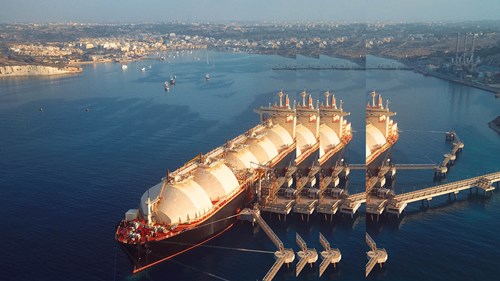UK Bribery Act
On 30 November 2015, the President of the High Court of Justice, Queen’s Bench Division, Lord Justice Leveson, confirmed the first deferred prosecution agreement (DPA) entered into in the United Kingdom. At the same time, one of the first decisions was reached on a case involving the application of corporate criminal liability under section 7 of the UK Bribery Act.
DPAs are agreements between companies threatened by criminal prosecution and the prosecution authorities which unlike a plea agreement do not lead to the company concerned being sentenced; instead, they initially suspend the further investigations as well as the charges and completely drop them if certain conditions set down in the DPA are met.
Section 7 of the UK Bribery Act deals with situations of “strict liability” in which an act of bribery carried out by an “associated person” is sufficient for the company to be held liable and proof of further culpability on the part of the company is not required. The company can only avoid being punished if it is able to provide counterevidence that it has made sufficient safeguards to prevent corruption. In particular, it is not necessary (unlike in other situations involving corporate liability under British law) for any culpability to be determined on the part of a person holding a responsible management position at the company (a “directing mind”). In the opinion of the prosecution authorities, criminal offences under section 7 of the Bribery Act are particularly suitable for the conclusion of DPAs. This is because the degree of probability of proving a breach that is required to be able to conclude DPAs is quickly reached in these situations of strict liability.
The possibility of entering into DPAs was introduced in April 2013 as part of the Crime and Courts Act. However, the precise conditions for this were only determined once the Code of Practice adopted by the Director of the Serious Fraud Office (SFO) and the Director of the Public Prosecution Service (CPS) came into force in February 2014 and the Sentencing Guidelines on sentencing of fraud, bribery and money laundering offences in cases involving corporate liability introduced by the UK Sentencing Council became effective in October 2014.
To be able to conclude a DPA, the investigating authorities first have to look at whether the proceedings are suitable. As a starting point, it is sufficient if there is a suspicion, supported by admissible evidence, that the accused company has committed the offence and that continued investigations would bring to light additional evidence within a reasonable period of time, meaning that overall there is a realistic probability that the company will be sentenced. Thus, DPAs are possible at a very early stage of the investigations and can lead to the time spent on investigating the facts being significantly reduced. This is tempting but entails considerable risk that the matter will not be investigated properly. The Code of Practice makes clear that it is still in the sole discretion of the criminal prosecution authorities whether to offer to take up negotiations on a DPA. The SFO and CPS are still first and foremost prosecutors; the Code points out that DPAs are only appropriate in exceptional cases. When deciding whether to offer the company the opportunity to conclude a DPA, the prosecutors have to consider the public interest in prosecution. The more serious the offence and the greater the damage caused, the greater this public interest.
The prosecution authorities have always emphasised that they will examine very critically whether the requirements for DPAs exist in each specific case. Thus, it is all the more surprising that the very first proceedings concluded on the basis of strict liability under the terms of section 7 of the Bribery Act have ended in a DPA. It is possible that the “exception to the rule” maxim set down in the Code of Practice will not be cast in stone.
The background of the first DPA was the payment of 6.0 million US dollars by the Tanzanian-based Stanbic Bank Tanzania Ltd, a subsidiary of the company then trading as Standard Group PLC, to a “local agent”, another company also based in Tanzania. The payment is alleged to involve, either in part or entirely, bribes to an official in Tanzania. This supposedly helped the joint offer by Standard Bank PLC (now ICBC Standard Bank Plc), registered in the United Kingdom, and Stanbic Bank Tanzania Ltd to acquire a mandate from the Tanzanian government to carry out a private placement worth 600 million US dollars. A total of 8.4 million US dollars in bank charges was generated from this mandate; 6.0 million went to the local agent.
Under the DPA, the British-headquartered Standard Bank PLC was accused of failing to prevent the alleged corrupt payment. Besides this, it was obviously not able to prove that it had set up the “adequate procedures” required to prevent this.
Standard Bank PLC’s attention was drawn to the suspicion by an internal communication, and the bank approached the Serious Fraud Office before carrying out an internal investigation. Under the DPA, Standard Bank PLC then agreed to pay a total of 25.2 million US dollars and GBP 330,000 for the costs incurred by the British authorities.
In addition, the bank arranged to have its compliance system analysed by an independent reviewer and agreed to implement the resulting recommendations.
The sum of 25.2 million US dollars contains payment of 6.0 million US dollars plus interest in compensation to the Tanzanian government, this sum reflecting the amount paid to the “local agent” plus confiscated profits of 8.4 million US dollars and a fine of 16.8 million US dollars. As far as the confiscated profits are concerned, in particular, it is interesting that a strict principle was applied regarding gross costs – expenses and costs could not be deducted. Apart from this, Standard Bank PLC has to pay the costs of the independent review of its compliance system. The value of the fine is particularly surprising, since Standard Bank PLC had already expressed its willingness to cooperate at a very early stage, had reported the matter even before carrying out its own investigations and had also cooperated in full during the proceedings.
Nevertheless, the DPA now concluded is supposedly a well-meaning concession on the part of the prosecution authorities. Those in charge at the SFO are not failing to tire in stressing that there are still high obstacles for concluding DPAs, which fundamentally require real, active and early cooperation.
This decision and the DPA entered into tell us two things: on the one hand, the SFO has shown that it is intending to use the territorially broad scope of the UK Bribery Act and, on the other, reporting one’s own offences at an early stage and cooperating in full will not prevent a sizable punishment, even in the shape of a DPA. If a company threatened by prosecution opts for this route, it should be aware of the consequences and should be actually willing and able to offer such cooperation.
The SFO’s press release can be found here.







